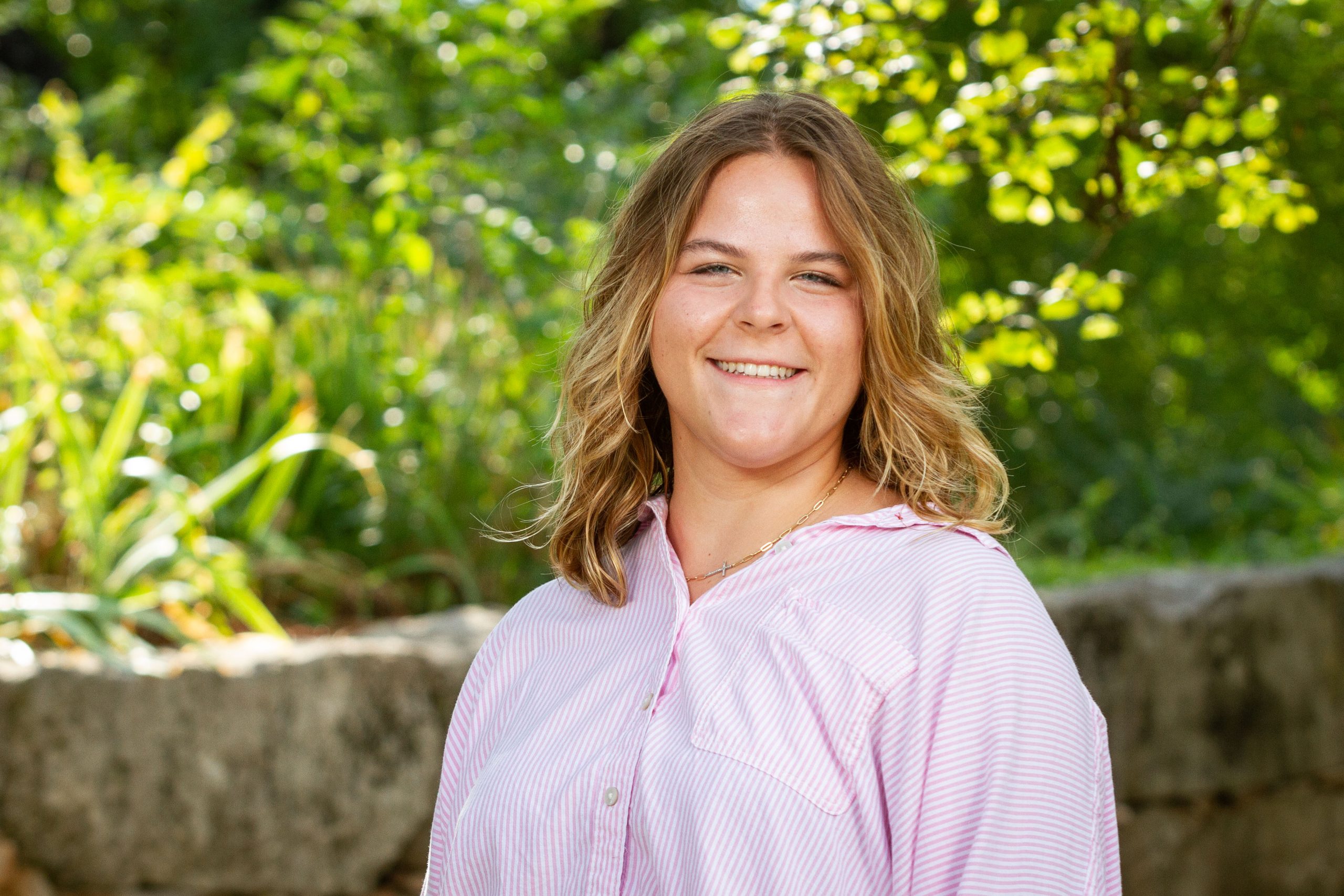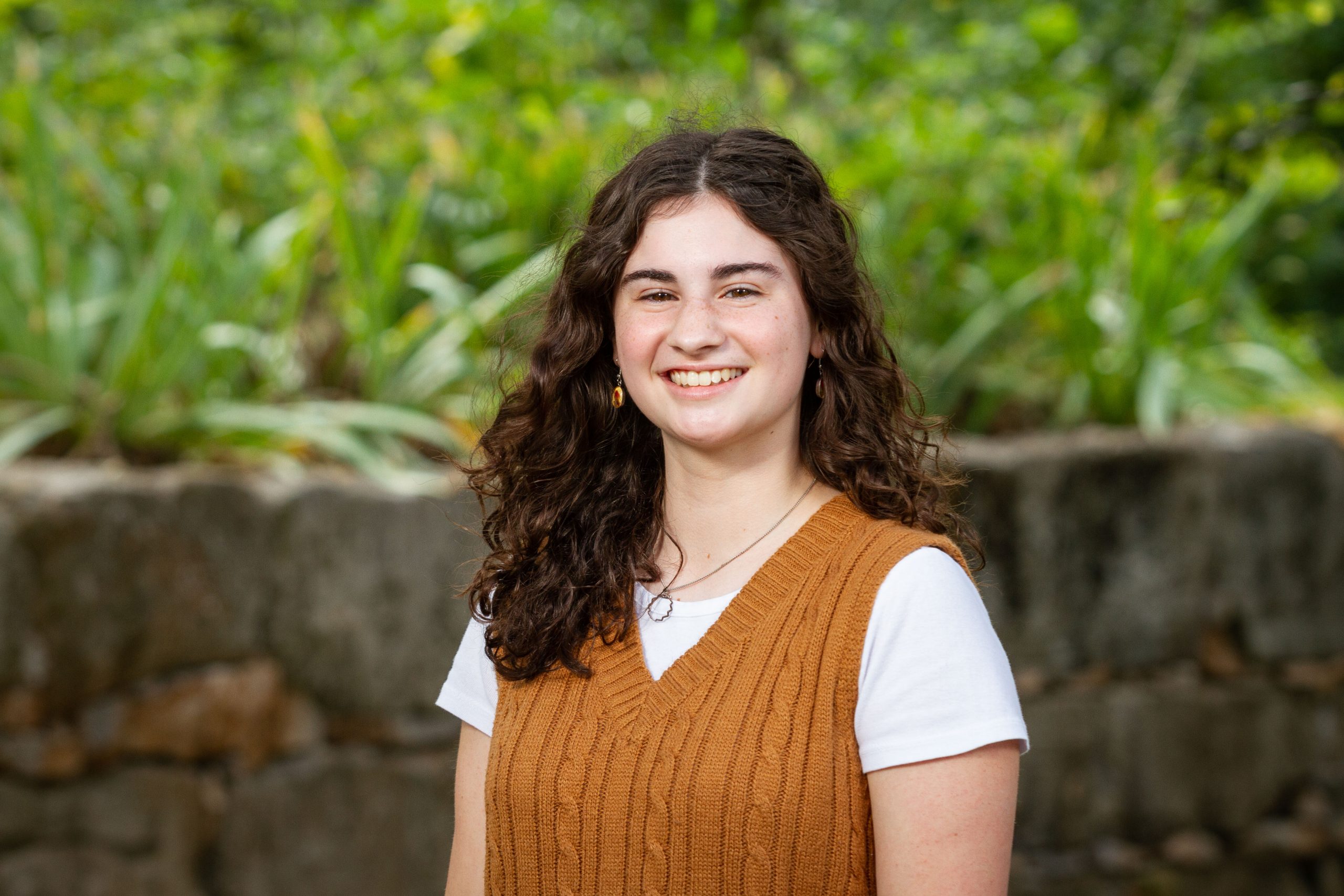Summer 5Q: Sarah Schrader Splits Summer Between China, DNA Sequencing
August 2, 2010 | 5Q, News, People, Research, Students, Summer, WKU | No Comments

Sarah Schrader (Warren, ’11) is one of eleven recipients of the Gatton Academy’s Research Internship Grant for this summer.
Schrader has already characterized a unique phage through the course of the HHMI’s Genome Discovery and Exploration Program during the 2009-10 academic year. However, her phage has never had its DNA sequenced until this summer.
The research that Schrader is undertaking this summer is being managed around an eight-week intensive language study abroad trip with the WKU Chinese Flagship. Before departing for Chongqing, China, Sarah spent the first three weeks of summer re-isolating her phage’s DNA and preparing her samples to be sent off for DNA sequencing to a national laboratory.
When Sarah returns later this month, the DNA sequencing should be complete. With these results, Sarah will resume her research. If all goes to plan, by the summer’s end Sarah will have annotated a unique DNA sequence, which she will submit to the National Center for Biotechnology Information’s DNA sequence database, being listed as the first author of the submission.
In the midst of all of this activity, Sarah managed to answer some questions about her summer research.
1. Tell us a little about the project or program in which you are participating this summer that the Research Internship Grant is funding.
Last year I participated in the Genome Discovery and Exploration Course, which is a national initiative designed to engage college freshmen in authentic research. Another sub-goal of the program is to enhance the growing database of bacteriophage genomes available for researchers. Bacteriophage are viruses that infect bacteria, and, as deadly antibiotic resistant strains of bacteria become more and more common, researching them and their bacteria-destroying capabilities is quickly becoming more and more crucial. During the fall semester of the course, I isolated a novel bacteriophage from the environment. Over winter term, two phage discovered in our class were sent off to sequencing centers to have their genomes sequenced. The spring semester was spent using computer programs to annotate the genome, deciding where each gene started and ended and assigning putative functions to them. Since my phage was not one of those chosen to be sequenced, I decided to work independently this summer to complete its characterization at the genomic level.
2. What is the part of the summer experience you are enjoying most?
So far I have enjoyed the independence this experience has provided me the most. During my research last year, I was still trying to learn techniques and procedures and frequently had to rely on my instructors to guide me. Now, however, I already know how to use equipment I need and how to carry out important procedures and thus don’t have to rely on my supervisor as much, although he is, of course, ready and willing to help should I need anything.
3. How is this different from the way you think most high school students spend their summers?
As soon as summer starts, many high school students flop down on the couch in front of the TV and don’t get up again until the next school year arrives. Even those that have jobs usually work as cashiers, babysitters, or store clerks, and while that is good work experience and a fair source of spending money, ringing up happy meals or chasing little kids around probably doesn’t stimulate their intellects a substantial amount. Some students do choose to go to a variety of different summer camps and programs, some of which do involve science-related subjects. These, however, are usually very structured and strictly supervised. I, on the other hand, have no idea what the results of my research will be and have control over my own schedule as I introduce the scientific world to a completely new if infinitesimal piece of knowledge.
4. Will you be using this research experience as a launching point for any particular applications, competitions, or scholarships?
I plan to use this experience as the basis for my entry to the Siemens Competition and Intel Science Talent Search in the fall and to supplement my application for the Goldwater Scholarship in the spring of next year. Considering the person who won the Intel Science Talent Search this year developed a cancer treatment that utilizes a light energy stimulated drug to kill off cancer cells and the winner of the Siemens Competition researched chemotherapy drug resistance, I’m not expecting much – as far as I know, bacteriophage can’t kill cancer. But they do have the potential to wipe out new menaces like drug resistant tuberculosis and multiple drug resistant staph, so I guess it’s worth a try.
5. How does this research experience or internship fit into your educational and professional goals?
Although I’m not really sure what I want to do, I have been considering a career as a research geneticist. This project ties into that goal quite nicely as it involves the sequencing and annotation of a genome. I am sure that I want to major in biology, and, of course, this project also fits well with this goal.
6. What are you looking forward to the most about your second year at the Academy?
My first year at the Academy was amazing. The classes and professors were outstanding, as were my peers and counselors at Gatton. I was provided so many opportunities to grow as a scholar and a person, and I am truly grateful for them and everyone who worked so hard to give them to me. Right now I am most looking forward to my classes, but also to continuing my research and once again being immersed in the unique environment of Schneider Hall. Next year I know there will be even greater opportunities open to me, and I plan to seize as many of them as I can!





